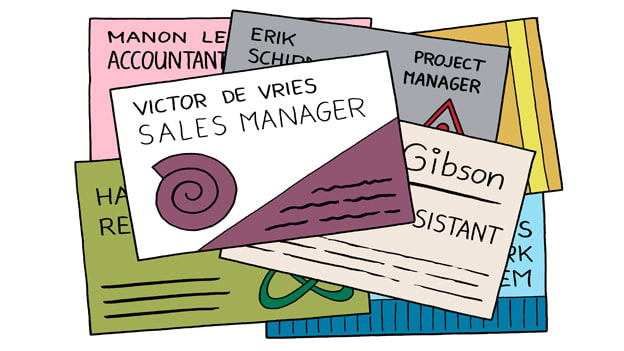Employees don't like unconventional job titles: Report

Every time you are endlessly scrolling for job postings, you are likely to come across new and creative, and sometimes borderline cryptic, job titles for the same old job profile. In fact this trend has really caught the eye of recruiters in the last few years, but, if a recent study is anything to go by, employees are not a big fan.
What is the study?
A was survey conducted by Spherion Staffing Services and Research Now to understand how employees viewed and perceived their role, job title and responsibilities. The survey was conducted online in the month of September, is a part of the WorkSphere survey by Spherion Staffing, and was conducted along with Research Now, a market research data collection organisation.
What did they find out?
- 25% of the respondents considered non-traditional job titles unprofessional and are not in the favour of having the same for themselves. 23% said that such titles do not ‘accurately capture’ the roles and responsibilities of the job assigned to them.
- Overall, 42% of the workers surveyed admitted to feeling that their job title is misleading and doesn’t truly reflect what their work actually entails.
- 14% considered that titles like ‘project manager’ or ‘specialist’ are too generic in nature and do not correctly show what their work is.
- However, despite a general dissatisfaction with their job title, 89% of the respondents felt confident in their ability to correctly and aptly explain their job in an easy and understandable way. The ones who felt otherwise here said that their role is too complex for anyone outside the industry to fully understand.
- Interestingly, 27% feel that their professional and personal networks would consider their work boring, if it was accurately described to them. 53% said that their explanations changed with the audience, whereas 11% admitted to occasionally lying about what they do for a living.
- In the age group 18 to 34 years, there was more pressure to ‘dumb down’ their role, whereas older employees (45 and above) were more comfortable explaining their role in detail.
- 31% of the respondents felt that their work or industry is too niche to explain in simple terms, whereas 29% admitted to avoiding the use of jargon and technical terms in casual conversations with friends and family.
- 45% of the workers between 18-34 years felt that popular culture significantly forms how others view their job, whereas, for the entire population, this number was down to 30%.
- Workers aged between 18 to 34 years felt that a creative job title might reflect creativity or culture in their organisation, but 45% of the same respondents also felt that their job title is not accurate.
What do the results imply?
"Employees take great pride in their job titles, and in some cases, a title that is considered limiting or hard to describe can significantly impact their job satisfaction," said Sandy Mazur, Spherion Division President.
The survey shows that creative and unconventional job titles, that have specially made inroads in the HR and IT sectors, might not be working the way they were expected to. If the concept is giving an impression that such titles fail to relay what the real work is, there is probably a need to relook at the entire exercise. Furthermore, the fact that old and generic titles are considered generic as well, point to the fact that companies need to do a careful balancing act before they proceed.
"As businesses face greater pressure to retain and recruit top workers, re-examining how different titles are perceived and applied can make a big difference in building morale and positioning a company as a favourable place to work” says Sandy Mazur.
The Bottom-Line
The survey shows that organisations need to put in a lot more thought and effort in ensuring that their employees feel valued, and in turn value their role, and definitely need to do more than repackage the job profile by changing a word or two. In the HR domain, new and creative titles are increasingly becoming the norm as well, but there needs to be an assessment of how aptly such titles are able to convey the job roles, to the intended candidates, and the public at large. So before you jump onboard with this trend, make sure you fully realise if the trick will fulfil its purpose.












